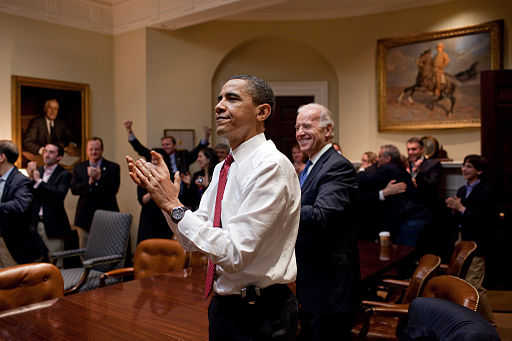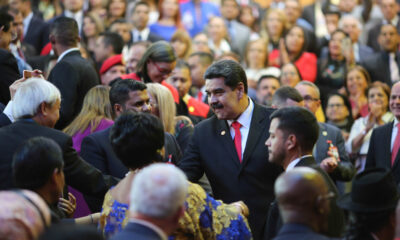Ignite the Pulpit
Barack Obama: who is he?

The identity of Barack Hussein Obama has puzzled countess commentators in America and abroad since he surfaced as America’s presidential candidate back in 2004. Barack Obama has been rightly but inadequately called “the first post-American President,” which correctly describes an individual who tacitly and even scornfully rejects America’s two foundational documents, the Declaration of Independence and the Federal Constitution.
Since this rejection has world-historical significance, it needs to be seen in a broader intellectual context to reveal not only the mode of thought that animates Barack Obama, but also the metamorphosis of America that made him its president.
How did Barack Obama become President?
America’s two foundational documents are brilliant and salutary manifestations of modernity. But no one can understand them properly, apart from a theological background implicit in the Declaration’s concept of the “Laws of Nature and of Nature’s God.”
This pivotal concept of the Declaration has positive as well as negative aspects, since it empowers government on the one hand, and limits the powers of government on the other. It is from that pivotal concept that we derive our inalienable rights to “life, liberty, and the pursuit of happiness”; and it is the government’s primary duty to formulate positive or statute laws to protect these God-given natural rights.
Thus, while these God-given or natural rights empower the government, they also impose limitations on what the government may and may not do.
Unknown to most people today, the “Laws of Nature and of Nature’s God” was understood by learned men in eighteenth-century America and Europe as an abbreviation of the Seven Noahide Laws of universal morality embodied in the Book of Genesis and elaborated in the Babylonian Talmud. Indeed, this is one reason the presidents of colonial colleges, Samuel Langdon of Harvard, and Ezra Styles of Yale – both Hebraists – conversed with visiting rabbis on the New England law codes which then incorporated the Noahide laws of morality.
All this is to be understood as Hebraic ingredients infusing and elevating the modernity of America’s colonial colleges. Present-day political scientists of both modern and classical Greek persuasion have ignored this Hebraism, or failed to explore it.
Hebraism rejected Enlightenment materialism
We must credit the Puritan and Calvinist influence represented, respectively, at Harvard and Yale, for this Hebraism. But we must now mention the skepticism and materialism of the philosophers of the Enlightenment. They include Hobbes, Locke, and Hume. Harvard and Yale rejected the skepticism and materialism of those philosophers.
The curriculum of America’s colonial colleges featured not only by Hebraism, but also the classics of Greek and Roman antiquity. America’s Founding Fathers drew inspiration from the incomparable Demosthenes and Cicero, as well as by Plutarch and Livy. It was from these Greek and Roman writers that the Founders learned oratory, statecraft, and monumental history. We see this in The Federalist Papers, arguably the greatest work on the legislative and executive branches of government).
Those Greco-Roman writings, fused with the teachings of the Bible, fructified the America’s colonial colleges and statesmen. Evident here was a synthesis of classical and modern political philosophy. Even classical scholars attuned to the works of Plato and Aristotle, have overlooked this. The loss resulting from this oversight is incalculable, since it facilitated post-modernism.
Post-modernism enabled Barack Obama
Post-modernism is a rejection of the universalism of early modern political philosophy – say of Montesquieu. It rejects as well the universalism of both classical political philosophy and the Bible of Israel. Rejected, therefore, is the Great Tradition of Western Civilization. This means that post-modernism is unadulterated Nihilism, a philosophy of the Void.
With this background of ideas, which I elaborate in Rescuing America from Nihilism, we can understand in depth that “empty suit,” Barack Obama. We can also understand the pathological state of the nation that made him its president. (Remember: Barack Obama is seeking a third term in the person of Hillary Clinton.)
Of Clinton, enough to say that her political mentor was Saul Alinsky. His book, Rules for Radicals, explicitly names Lucifer, Satan, as his mentor. This defines the political metamorphosis of America.◙
-

 Civilization4 days ago
Civilization4 days agoWhy Europe Shouldn’t Be Upset at Trump’s Venezuelan Actions
-

 Christianity Today4 days ago
Christianity Today4 days agoSurprising Revival: Gen Z Men & Highly Educated Lead Return to Religion
-

 Executive5 days ago
Executive5 days agoWaste of the Day: Can You Hear Me Now?
-

 Civilization2 days ago
Civilization2 days agoTariffs, the Supreme Court, and the Andrew Jackson Gambit
-

 Civilization2 days ago
Civilization2 days agoWhy Europe’s Institutional Status Quo is Now a Security Risk
-

 Civilization3 days ago
Civilization3 days agoDeporting Censorship: US Targets UK Government Ally Over Free Speech
-

 Executive3 days ago
Executive3 days agoWaste of the Day: Wire Fraud, Conflicts of Interest in Connecticut
-

 Civilization3 days ago
Civilization3 days agoEpstein and the destruction of trust










Ron Chronicle liked this on Facebook.
I don’t care who he is. I just want to know that he is retired.
Digg Patriots liked this on Facebook.
John Oliver liked this on Facebook.
De Don GH liked this on Facebook.
Matthew Farag liked this on Facebook.